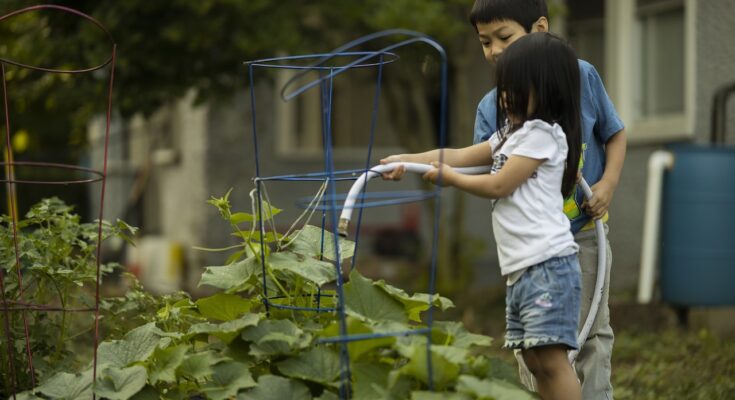Kitchen gardening on roofs has become a fun way of farming. It is sustainable, healthy, and fascinating for people. You don’t need a large yard. It also means your rooftop can turn into a green oasis.
In this article, you will get all the necessary information about the beginning and the proper use of kitchen gardens on roofs.
Why Kitchen Gardening on Roofs:
Roof gardening in the kitchen has several advantages.
-
Maximizes Space
Groups usually do not have space to keep gardens because they live in cities and towns. Rooftops make the best substitutes for this.
-
Grows Fresh Products
Cultivating vegetables, fruits, and Herbs on one’s premises is now possible. Free from pesticides or chemicals, no issues at all.
-
Reduces Costs
Food bills are reduced when you consume produced from your backyard.
-
Eco-Friendly
Vegetation on rooftops reduces air pollution. They also have the added function of cooling urban areas.
Setting Up Your Roof Garden
The process of beginning with rooftop kitchen gardening is relatively easy. Follow these steps:
-
Check Your Roof’s Condition
Ensure that the roof’s intensities support the soil load and, consequently, the plants and pots. Consult an expert if needed.
-
Plan Your Layout
Choose spots for placing pots, containers, and raised beds. Keep the room enough for walking and watering.
-
Choose the Right Containers
Pot culture, grow bags, or any recycled materials should be used. To confirm, they have drainage holes.
-
Prepare the Soil
Prepare soil by using a mixture of soil, compost, and coco peat. It will allow individual plants to receive the correct nutrients and water.
Plants to Grow on Roofs
Not all plants can be arranged on the roof as it depends on various aspects of the plant. Here are some great options for kitchen gardening on roofs:
-
Vegetables
Tomatoes, peppers, spinach, lettuce, and carrots can be grown in this climate.
-
Fruits
Of the following, strawberries, dwarf citrus, and blueberries are ideal.
-
Herbs
Basil and mint, cilantro, and oregano give a tasty flavor to your foods.

Caring for Your Roof Garden
Realization of kitchen gardening work on a roof requires attention. But it’s manageable with these tips:
-
Water Regularly
Rooftop gardens are vulnerable to biotic factors, such as drying out faster than regular ground-top soils. Check moisture levels daily.
-
Protect from Wind
Mesh or tall plants should be used to screen tender plants from winds.
-
Fertilize Occasionally
Fertilize the plants with residual organic compost or liquid fertilizers now and then within a few months.
-
Watch for Pests
Keep an eye out for pests. To manage them, therefore, utilize natural repellents.
Challenges of Kitchen Gardening on Roofs
A paper by M. M. K. Chowdhury lists the following difficulties that arise out of practicing kitchen gardening on roofs: Although considered innovation, engaging in kitchen gardening on roofs has certain complications.
-
Heat Exposure
Roofs can get very hot. Using mulch or shade nets in the field is advisable for protection.
-
Weight Limitations
Avoid overloading your roof. Lightweight soil and pots should be used whenever planting.
-
Access to Water
Plants in roof top garden need water regularly because they do not have access to ground water so that irrigation can be quickly done.
Kitchen Gardening on Roofs: Tips for Success
- Start small. Grow the account slowly as the confidence in the process increases.
- Try growing your plants in a vertical posture to conserve space.
- Opt the ways that should be used in the preservation of water.
- We suggest involving the family members in making gardening entertaining.
Final Thoughts
The kitchen gardens on rooftops are more than pastime interests. It’s a lifestyle. They are healthy, sustainable, and creative. Anyone who has worked in it will know there’s always something new to learn, no matter how little experience you have.
Grow your food on the roof of your home today. Don’t miss a chance to appreciate fresh products and a cleaner environment!
Also read about: Decorative Lighting for Home interior



2 Comments on “Kitchen Gardening on Roofs: A Simple Guide”
Comments are closed.